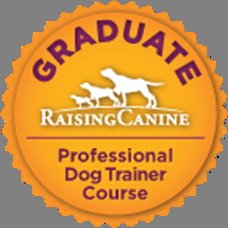Puppy Stages-How they develop
and grow

A basic part of a pup's socialization is based on their mother's attitude--relaxed or skittish--toward people. The way you interact with your new puppy can play a big role, too. Interacting with your puppy through play and talking can help your puppy to develop the "people skills" needed to be a well adjusted member of your family and society.
While weaning for puppies can take place at six to seven weeks, they are still learning important skills from their litter-mates as their mother starts to leave them for longer periods of time. Puppies that stay with their litter for at least three months are more likely to develop good social skills as they learn important social skills from each other like bite inhibition.
When puppies are separated from their litter-mates too early, they often fail to develop important social skills.
Through these interactions with their mother and litter-mates, puppies learn what being a dog is all about. During the first eight weeks of age, skills not acquired may be lost forever or very hard to learn.
Most dogs are considered puppies for up to two years of age, though puppyish behavior may end sooner or last longer in some breeds. Not much exercise in the form of running, jumping or pulling should be done for the first year as the growth plates of a dog are still closing.
Read more about this in my book Winter Dogs;Living with Huskies as Pet Dogs
The neonatal stage: Birth to two weeks
The senses of touch and taste are immediately present after birth. The mother has the most influence over the puppy.
The transitional stage: Two to four weeks
Mother and litter-mates continue to influence a puppy's behavior. The sense of hearing and smell develop, eyes open and the teeth begin to appear. A puppy begins to stand, walk a little, wag its tail, and bark. A puppy's eyesight is well-developed by the fourth or fifth week.
The socialization stage: Three to twelve weeks
A puppy needs play dates to meet other pets and people during this stage. All interactions need to be as positive as possible. By three to five weeks, play becomes important as a puppy becomes aware of his or her surroundings, companions (both people and dogs), and relationships.
The influence of the puppy's litter-mates increases at four to six weeks as he or she learns more about being a dog. From four to twelve weeks, a puppy's interaction with people becomes more influential. With littermates, the puppy learns to play, develops social skills, learns the inhibited bite, explores his or her social boundaries and improves physical coordination. Their teeth are very sharp and the response of the litter mates are affective and the damage is non due to the jaw being week. We also should give feedback but not by smacking the puppy.
You can read more about this in my book Shaping Your Dog The Positive Way.
By five to seven weeks, a puppy needs positive human interaction as he or she develops curiosity and explores new experiences. A puppy has full use of his or her senses by seven to nine weeks. A puppy is refining his or her coordination and physical ability, and can begin to be house trained. At eight to ten weeks, a puppy can experience real fear involving everyday objects and experiences. During this stage, a puppy needs support and positive reinforcement. Enhancing responses, advancing social skills with litter-mates (proper contact), and investigating the surroundings and items takes place from nine to twelve weeks. This is a good time to begin puppy classes as a puppy will begin to focus on people. But you can already start earlier it's just a little harder. If you got your puppy before 8 weeks it's important to start with puppy classes as soon as possible to try and make up for the loss of socialising with the mom and it's litter-mates.
Toddler stage: Three to six months
A puppy's play group, which may now include those of other species, becomes influential in his or her life. Teething and chewing begins. A puppy experiences another fear stage at four months of age, so be prepared with positive reinforcement and introductions to objects and situations.
The adolescence stage: Six to eighteen months
At seven to nine months, a puppy will begin exploring more of his or her territory, prompting a second chewing phase.
A puppy will experience the beginnings of sexual behavior if not spayed or neutered.
Back to Home page

Winter Dogs Second edition!! for only R220!!
Place your order now!!
Training and Behavior book. Shaping Your Dog,The Positive Way available online through amazon.com, Barnes and Noble.com and other reputable outlets. Also available through our web site.
Cost:R350.00
Click on the image of the book to see the video trailer or click on the book Winter Dogs to order any of the books.









